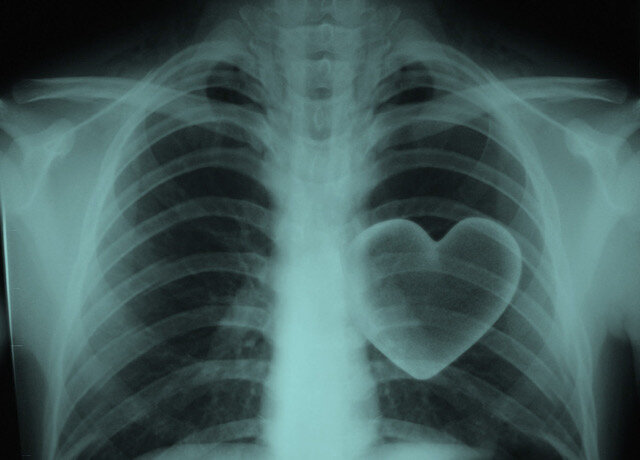Questions to Ask Your EMDR Therapist
What is EMDR (eye movement and desensitization reprocessing) therapy used to treat? The answer used to be straight forward, it was developed to treat PTSD in veterans. However, after it proved to be very beneficial, professionals began to apply it to many other types of problems- recent event traumas like car accidents, assaults, surgeries, deaths, and then to other issues like memories of sexual or physical abuse, alcoholism and addiction, phobias, anxiety, relational trauma or bereavement.
Ways to Help a Child That Has Experienced Trauma
Looking for ways to support a child that has experienced a trauma? Play therapist, Jennifer Hendricks, shares some practical tips for supporting children through difficult times.
How Can EMDR Help with Trauma?
Have you ever wondered if you are still being impacted by overwhelming events that happened in the past? Has an event left you with a lingering sense of powerlessness, guilt, distrust, or shame? Are your current emotional reactions out of proportion to your situation? Do you re-experience past events or work hard to avoid thinking about them? Trauma can have lingering impact on you and EMDR therapy can help.
What is EMDR Therapy?
EMDR is ‘short’ for eye movement, desensitization and reprocessing therapy. It is a comprehensive type of therapy, not just the part most people associate with it: which is the eye movement back and forth (bilateral stimulation). The eye movements can be achieved through finger movements, watching a light bar, holding the buzzers, tapping on knees, or audio tones through headphones. It is an eight phase treatment created by Francine Shapiro for addressing traumatic memories which includes such steps as: history taking, practicing re-stabilizing your emotions, the actual processing of the trauma, the closure step, logging your reactions, and then re-checking the memory during the next session.
Building Resiliency in your Grieving Child: A Parent’s Guide
As a parent, watching your child grieve can be an incredibly painful experience leaving you feeling helpless, heartbroken, and lost. For some families, grief shows up after a transition: a divorce, a move, or an illness. For others, the loss of a family member, a friend, or a beloved pet initiates the grief process. During these times, parents struggle to talk to their kids about the difficult emotions commonly experienced with grief. Although periods of grief in a family can be incredibly difficult, they can be invaluable in creating intimacy in close relationships and building strong coping skills throughout the emotional process.
The Importance of Validation
Here is an experiment for you: The next time you are experiencing interpersonal conflict, try something different. Look for something that you can validate and speak those words aloud. “It makes sense that you feel…….”
Give Your Heart an X-Ray
Have you ever known something was wrong in your life? The signs are there: anger, emptiness, and withdrawal from relationships. Maybe you notice ever-present anxiety, jealousy, or substance abuse. You ruminate on past events or seek to control everything and everyone around you. You can see the "swelling."
Sexual Desire: It’s Not What You Think
Understanding sexual desire in women can be a mystery. Couple’s therapist, Denise Rhew, unpacks issues associated with women’s desire and gives us some tips on how to rekindle passion in your relationship.
What Makes a Happy Couple?
While we might want to give and receive unconditional love, the “unconditional” part often comes with many conditions, including expectations and disappointment. We cannot take a magic pill for this to happen: connected couples work on their relationship to keep it strong. Anyone can experience this kind of deep connection, as long as they are willing to work for it.
Do You Have a Problem With Alcohol?
Has someone told you that you have a problem with alcohol? Are you wondering if your drinking has become a problem? Are you struggling to know how much alcohol is too much? Therapist, Beth Dean, specializes in problematic substance use and offers some wise and practical tips to help you determine if alcohol has become a problem in your life.
Anxiety In Children - How Do We Help Ourselves and Our Kids
Battling anxiety in the family? Play therapist, Jennifer Hendricks, share some simple tips for families to overcome anxiety and feel more peace in the day to day grind.
When Cupid Gets Old... Celebrating Valentine's Day for the Seasoned Couple
Been married a while? Creating a new Valentine’s Day tradition will bring deeper connection and intimacy in your relationship.
Connecting In a Relationship
Needing help connecting in your relationships? Therapist, Katie Ashby, shares how to assess your actions that may “DRAIN” your relationships with others.
Healthy Holiday Boundaries
Boundaries are the key to creating a happy, healthy, meaningful holiday season. Here are some tips to setting healthy boundaries for you and your family this holiday season.
Embracing Play in the Holiday Season
As a play therapist, I enjoy and love to watch children grow through play. How do they see their world? What things would they change, if they could?
Here are some strategies for kids and ideas to embrace during the holiday break from school……
Parenting Teens (Is Not for the Faint of Heart)
What parent of a teen hasn’t thought, “What should I do?!” when dealing with a moody, defiant, struggling, or withdrawn adolescent? While there is no 100%, foolproof way to parent a teenager, there are some generalities that apply in most instances. Here are some important reminders in parenting your teenager to help you keep your sanity.
Release My Grip
“The secret to surviving a child leaving the nest is to be fully present and support them and look forward to the future through the lens of their life, not backward through the lens of my life.”
-Kami Gilmour, author Release My Grip
5 Questions to Ask Yourself Before You Leave Your Marriage
Are you thinking about leaving your marriage? Here are 5 questions to consider before you leave.


















